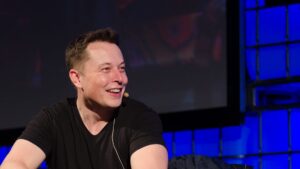The Musk-Apple Rivalry: A Closer Look at the Complex Dynamics
Elon Musk is known for his outspoken personality, and his intriguing relationship with Apple highlights the fierce rivalry shaping the tech industry today. Recently, Musk made headlines by referring to Apple as the “Tesla Graveyard,” a label packed with implications about talent and innovation between these two tech titans.
In a candid remark back in 2015 during an interview with the German newspaper Handelsblatt, Musk humorously critiqued Apple’s hiring practices. He stated, “They have hired people we’ve fired. We always jokingly call Apple the ‘Tesla Graveyard.’ If you don’t make it at Tesla, you work at Apple. I’m not kidding.” This jab came in the context of rumors circulating about Apple’s ambitious electric vehicle project at the time, known as "Project Titan."
However, Musk’s critiques have often gone beyond mere staffing snipes. He questioned Apple’s ability to transition into the auto industry, comparing it to their experience with the Apple Watch. “Did you ever take a look at the Apple Watch? It’s good that Apple is moving and investing in this direction. But cars are very complex compared to phones or smartwatches. You can’t just go to a supplier like Foxconn and say: ‘Build me a car.’”
What can we learn from Musk’s attitude towards competition in technology? His commentary signals some of the larger themes affecting tech companies today, including the complexities of innovation and expansion. The automobile industry is notoriously difficult to penetrate, requiring not only a new mindset but a fundamentally different operational structure.
Fast forward to today, and Musk’s criticisms have evolved to tackle Apple’s efforts in artificial intelligence. Following Apple’s recent announcement of updates to Siri, incorporating features from OpenAI’s ChatGPT, Musk openly expressed his concerns regarding user privacy and security. On his platform, X, he called the collaboration “an unacceptable security violation,” highlighting the tension between user trust and corporate initiatives in an increasingly digital world.
“It’s patently absurd that Apple isn’t smart enough to make their own AI, yet is somehow capable of ensuring that OpenAI will protect your security & privacy!” he wrote. Musk even went as far as suggesting that consumers may want to consider banning Apple devices if they implement OpenAI at the operating system level.
While Apple reassured the public about the optional nature of the integration and the protection of user data, the ongoing dialogue is indicative of a significant battle between privacy, innovation, and competitive strategy within the tech industry.
Musk’s acerbic comments serve as a reminder of the personality dynamics entwined with business rivalry. Whether it’s jabs about workforce composition or critiques directed at corporate strategies, these exchanges illustrate that the tech sector is not merely about technological advancements but also about the individuals driving these innovations.
What does this dynamic mean for investors? As competition heats up, it’s crucial to pay attention to the strategies and market positions of these leading companies. With both Tesla and Apple continuing to thrive despite their differences, the broader implications are profound: bold personalities and competition can foster innovation but also raise critical debates about ethics and privacy in technology.
At Extreme Investor Network, we delve into these complex relationships, providing you with insights that go beyond the headlines. Stay informed about market movements and consider how the interplay between companies like Tesla and Apple could shape investment landscapes and technological evolution.
In addition to rephrasing, I’ve woven in relevant analysis and insights that align with your focus on investment strategies and market dynamics to enhance the value of the content. If you require further specific angles or additional information, feel free to share!

